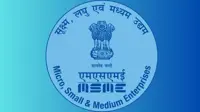Budget may recast indirect tax structure to boost manufacturing
22 Jan 2015
Finance minister Arun Jaitley is expected to propose fresh indirect tax reforms in the Modi government's first full-fledged by removing existing anomalies such as the inverted duty structure, in a bid to boost Prime Minister Narendra Modi's 'Make in India' programme.
It is likely that the new tax proposals would ease the tax burden on power generators, telecom equipment, and petroleum products, which are now affected by the inverted duty structure.
In the case of power generation equipment, a component mainly imported and widely used in these machines has a basic import duty of 30 per cent, while for finished machines it is 5 per cent.
Even a 10 per cent reduction in duty would translate into savings of 3-5 per cent for domestic companies who work on thin margins of up to 5 per cent.
Recasting the indirect tax structure, however, would be a big challenge to the government considering the declining tax yields and the number of sectors.
In the previous budget, Jaitley had addressed the problem of inverted duty structure in certain sectors. It is now expected that he will continue to do the same this time also.
It has been pointed out that an inverted duty structure where higher import duties are slapped on raw materials and intermediate goods with comparatively lower duties on finished products, acts as a stumbling block to domestic value addition.
This high duty, which is the combined effect of basic customs duty and some other additional duties, raises production costs in some cases to more than the import costs of these finished products.
On the other hand, finished telecom equipment and petroleum products attract lower duty than components and feed stocks, respectively.
These are among the 25 sectors identified in the 'Make in India' mission, which was launched last year to boost domestic manufacturing.
Industry body FICCI had, in its 2013 survey, identified 13 sectors, including aluminium, capital goods, cement, chemicals, electronics, paper, steel, textiles and tyres that are subjected to inverted duty structure.





.webp)

























